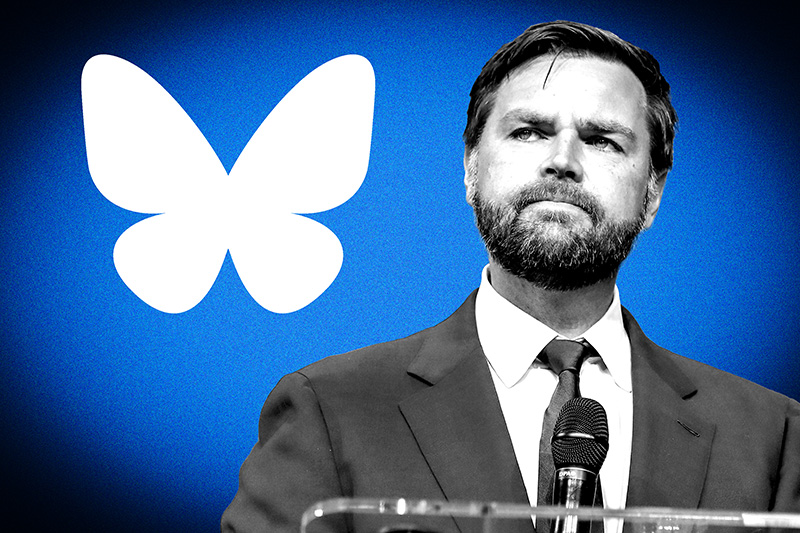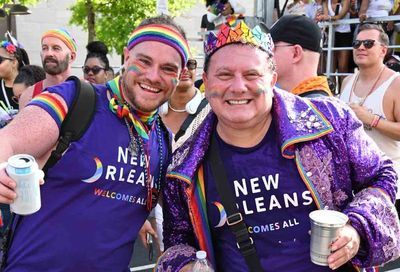Supreme Court says religious schools can fire LGBTQ employees despite nondiscrimination laws
Court's embrace of expanded "ministerial exception" could have negative ramifications for LGBTQ teachers in religious schools

On Wednesday, the U.S. Supreme Court ruled, in a 7-2 decision, that religious schools can treat employees as “ministers” and strip them of employment nondiscrimination protections, even if they are not directly involved in the teaching of religion.
The court’s ruling effectively carves out a huge exemption for religious schools by embracing an overly broad interpretation of what constitutes a “minister” and applying it to all teachers, even those who are lay, do not teach religion, or are not directly involved in the propagation of faith.
In two cases brought before the court, two teachers at religious schools alleged that they had been discriminated against and fired without cause. In Hermosa Beach, California, 64-year-old Agnes Deirdre Morrissey-Berru claimed she was terminated from her job at Our Lady of Guadalupe School, in part, because of her age.
In Torrance, California, Kristen Biel claims she her contract at St. James Catholic School was not renewed after she requested a leave of absence to treat breast cancer — which would eventually claim her life. Both schools claim that the women’s contracts were not renewed due to legitimate concerns about their job performance.
But the court found that religious employers do not have to abide by civil rights laws — including, as in these cases, laws such as the Age Discrimination in Employment Act and the Americans With Disabilities Act — if they believe that particular employees play an “important” religious role.
All five conservative justices and liberal justices Elena Kagan and Stephen Breyer embraced the broad interpretation of the so-called “ministerial exception,” which was intended to grant religious institutions freedom from government interference when it comes to determining who they employ. But Justices Sonia Sotomayor and Ruth Bader Ginsburg dissented.
“Until today, no court had held that the ministerial exception applies with disputed facts like these and lay teachers like [the teachers in these cases],” Sotomayor wrote. “…The Court insists that a ‘religious institution’s explanation of the role of [its] employees in the life of the religion in question is important. But because the Court’s new standard prizes a functional importance that it appears to deem churches in the best position to explain, one cannot help but conclude that the Court has just traded legal analysis for a rubber stamp.
“Although today’s decision is limited to certain ‘teachers of religion,’ its reasoning risks rendering almost every Catholic parishioner and parent in the Archdiocese of Los Angeles a Catholic minister,” Sotomayor wrote. “That is, the Court’s apparent deference here threatens to make nearly anyone whom the schools might hire ‘ministers’ unprotected from discrimination in the hiring process. That cannot be right. Although certain religious functions may be important to a church, a person’s performance of some of those functions does not mechanically trigger a categorical exemption from generally applicable anti-discrimination laws.”
The court’s decision comes just a few weeks after it determined, in the case of Bostock v. Clayton County, Georgia, that LGBTQ people are protected from workplace discrimination by Title VII of the Civil Rights Act of 1964.
But Wednesday’s ruling effectively sets the stage for any future legal action by allowing religious schools to claim the “ministerial exception” when it comes to teacher retention or renewing an employee’s contract.
This has potentially disastrous consequences for LGBTQ individuals who teach at religious schools, stripping them of any protections in the workplace, based on the premise that all employees of religious institutions are equivalent of clergy, and thus must abide by the teachings of the faith.
Recently, a number of religious schools across the country have fired LGBTQ employees, claiming their sexual orientation is incompatible with the schools’ religious mission and views on homosexuality.
See also: Trump administration supports Catholic schools firing gay teachers
Civil rights groups, including a number of LGBTQ advocates, denounced the decision and its potential ramifications.
“Today, the Supreme Court opened a veritable Pandora’s Box that threatens the continued employment and financial security of thousands of teachers at religiously affiliated schools. While there is no serious dispute that top authorities at churches and religious schools are free to select those who lead worship services or teach the tenets of their faith, it stretches the term ‘minister’ beyond recognition to also include those whose jobs or duties have little to do with propagation of the faith,” Lambda Legal Senior Counsel and Law and Policy Director Jennifer Pizer said in a statement.
“Teachers of secular subjects are not clergy by any reasonable understanding of the word. They should not be deemed clergy simply to shield their employers from liability for wrongful workplace practices,” Pizer added.
“The ministerial exemption especially should not apply to strip protections from teachers with secular roles at large educational institutions that serve the entire general public, regardless of whether those institutions have some sort of religious ties.”
Shannon Minter, the legal director of the National Center for Lesbian Rights, warned that the impact of the court’s ruling would open the door to sweeping exemptions to existing nondiscrimination laws.
“Depending on how the Court applies this decision in future cases, it may enable religious employers to evade civil rights laws simply by claiming that virtually any employee is somehow fulfilling an important religious function,” Minter said in a statement.
“Protecting religious liberty is important, but this decision goes too far and leaves far too many employees vulnerable to being fired or abused for reasons that have nothing to do with religious beliefs. The ruling is particularly harmful for LGBT employees who already face a pervasive threat of being singled out for discriminatory treatment by religious schools and other religious employers.

“Coming so soon on the heels of the Court’s recent decision in Bostock, which held that LGBT workers are protected under Title VII, today’s decision effectively takes away with one hand what it gave with the other for the many LGBT people who work for religious employers,” added Minter.
“For these LGBT workers, the victory in Bostock may end up meaning very little if a religious employer can fire them at will merely by invoking today’s decision.’
James Esseks, the director of the American Civil Liberties Union’s LGBT & HIV Project, also denounced the decision.
“While the Supreme Court has made it clear that it is against the law to fire someone for being LGBTQ, today they made it easier for religiously-affiliated employers to discriminate — including against LGBTQ people,” Esseks said.
“The court also opened the door to broader denials of health care, an area where LGBTQ people — particularly transgender people — already face alarming rates of discrimination.”
Esseks also worried that the court might further expand the types of exemptions granted to religiously-affiliated organizations whose beliefs conflict with civil rights laws.
“This fall, the Supreme Court will be hearing a case, Fulton v City of Philadelphia, that could allow taxpayer-funded programs — including foster care, homeless shelters and health care programs — to turn away people for not meeting a religious test,” Esseks said. “The court must not expand a license to discriminate any further than it has today.”
Katy Joseph, the director of policy and advocacy at Interfaith Alliance, said the court’s ruling caused “irreparable harm” to the First Amendment right of religious freedom and “distorts the ministerial exception beyond recognition.”
“An educator grappling with a cancer diagnosis or nearing the age of retirement deserves the same workplace protections regardless of the type of school she works for. This is why Interfaith Alliance joined allies in an amicus brief urging the court to clarify and limit the ministerial exception to ensure that employees of religious schools remain protected under workplace nondiscrimination laws,” Joseph said in a statement.
“Most religious schools may not discriminate, but those who do now have carte blanche to break the law under the guise of religious freedom.”
Read more:
Maine transgender man sues Dunkin’ Donuts franchise for wrongful termination and sexual harassment
8th Circuit revives gay health care salesman’s lawsuit alleging employment discrimination
Support Metro Weekly’s Journalism
These are challenging times for news organizations. And yet it’s crucial we stay active and provide vital resources and information to both our local readers and the world. So won’t you please take a moment and consider supporting Metro Weekly with a membership? For as little as $5 a month, you can help ensure Metro Weekly magazine and MetroWeekly.com remain free, viable resources as we provide the best, most diverse, culturally-resonant LGBTQ coverage in both the D.C. region and around the world. Memberships come with exclusive perks and discounts, your own personal digital delivery of each week’s magazine (and an archive), access to our Member's Lounge when it launches this fall, and exclusive members-only items like Metro Weekly Membership Mugs and Tote Bags! Check out all our membership levels here and please join us today!




























You must be logged in to post a comment.